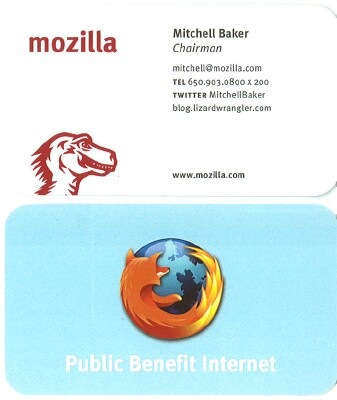UPDATE: In an odd coincidence, this post appeared just about the time Microsoft announced plans about shipping Windows 7 without Internet Explorer. This post is a synthesis of the public discussions within the Mozilla community over the past weeks. It is not intended — and certainly won’t serve — as a response to Microsoft announcements or plans.
—
Of the various principles I proposed, the ones that get the strongest positive response are those that protect the choices people have already made or are trying to make. These are outlined in principles 1: Respecting Previous Choice and 2: Windows Must Not Provide a Technical Advantage to IE.
Another set of principles generate a positive response, but feels much more low-key. This includes principles 5, Microsoft must educate people about other browsers and principle 6, Educating people about other browsers.
Principle 7, IE must support web standards, was controversial as a judicial / regulatory requirement. Many want IE to do this but are even very uncomfortable with a regulatory agency determining technical standards in a wildly changing setting such as today’s internet.
The more direct, product based Principle 3, Windows must enable people to choose other browsers, generated some very positive feedback and also some concerns. The positive response comes from the idea that one can’t address the problem without addressing the product. The concerns seem based in (a) complexity of user experience concerns; (b) concern over unintended consequences. The same is true of remedies that have direct effects on the OEM distribution channel. There’s a recognition the OEMs are third parties with their own goals, and an understanding of how hard it is to effectively change such relationships.
There are also people who argue that no one should be able to tell Microsoft anything about its products. People in this group may reject antitrust laws in general, or may reject their application to this kind of technology, or may not know of their existence. Probably all three play a part. Of those people who accept that antitrust law exists and might be applicable, there is a group that wonders if Firefox itself is solving the problem as its market share grows. In contrast, for many people Firefox is mitigating some of the effects of the tying of IE with Windows but does not change the distorted competitive setting that the tying creates.
From this I can say the following about potential remedies, assuming the EC confirms its preliminary conclusion that Microsoft’s tying of IE with Windows violates EC law.
The most basic aspect of a remedy should be to stop Microsoft from subverting the choice to use a browser other than IE. I gave some examples of this in my earlier posts. This will be increasingly important as use of alternative browsers spreads from the early adopters who are more comfortable with their computers to those for whom making any choice that isn’t the default is a bit scary. Forcing those people to figure out and then choose an alternative browser over and over because Windows has somehow pulled them back into IE is a structural problem. Fixing this is an easy and obvious way to protect consumers.
A further remedy that has been publicly discussed is requiring Windows to enable people to choose other browsers, whether through a ballot or not allowing IE to be the automatic default. In other words, helping more people know they have a choice. The lack of knowledge of this choice and the effect it can make is of course a key problem with today’s competitive structure, and is closely related to the integration of IE into Windows. Enabling more people to understand the choices available to them can have some very beneficial results. It is also complex and this aspect of a remedy must be very carefully crafted. The chances for creating a difficult user experience or unintended consequences are real, and so there is a level of concern about the details of what a remedy would look like among even those who support the principle. This mirrors both the challenge and the opportunity of working to provide greater user choice. The reality of the challenges reflects the great importance of the goal.
Mozilla and Firefox have demonstrated that the piece of software known as the “browser” is critically important to each individual’s online experience and to the overall health of the Internet. Building a setting in which consumers and citizens understand they have a choice, realize they can demand better by changing browsers, and aren’t penalized for doing so is a fundamental step in building an internet that retains vibrancy, innovation and choice.

